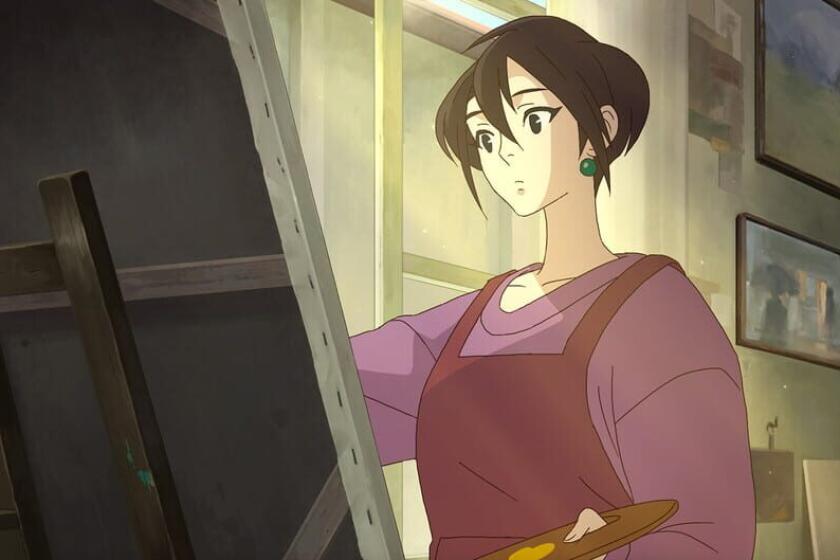The 10 essential games of 2021 that helped us define who we are now
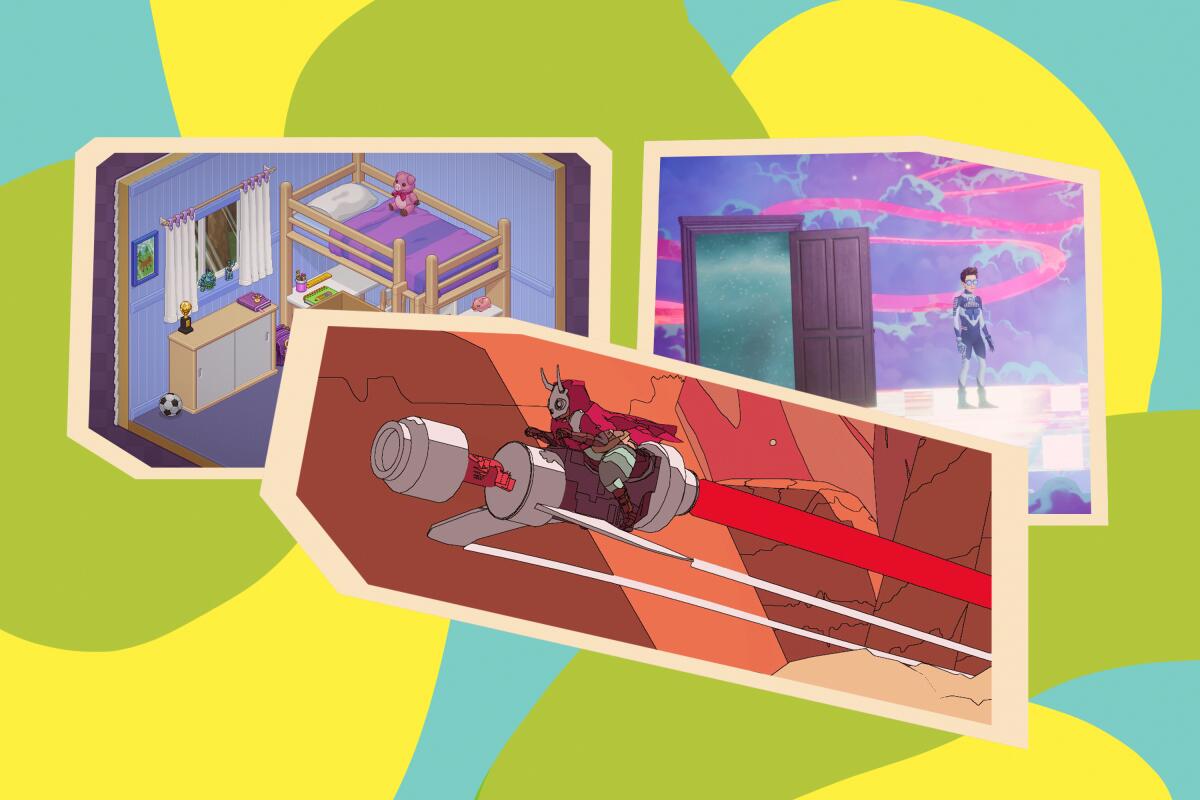
- Share via
It’s not the shooting, or the running and the jumping. All those things are fun, of course, and make up the basics of a number of games, including several of my favorites from this year.
“Psychonauts 2” is in many ways a classic 3-D platformer, or jump-and-run game. “Halo Infinite” is the modern shooter at its most refined.
But when I look back at the games that meant the most to me in 2021, I largely think of emotional experiences, games that asked me to rethink how I interact with a digital text, or left me with questions to ponder.
Many, including “The Artful Escape,” “Sable” and “Unpacking,” sought to question our place and our role in the world. They’re quests for identity rather than collections of puzzles.
In other words, they’re conversation starters, and they’re among my top picks for 2021 because they feel like dialogues themselves. Such, after all, is the joy of the interactive medium.
1. ‘The Artful Escape’ (Xbox consoles, Windows)
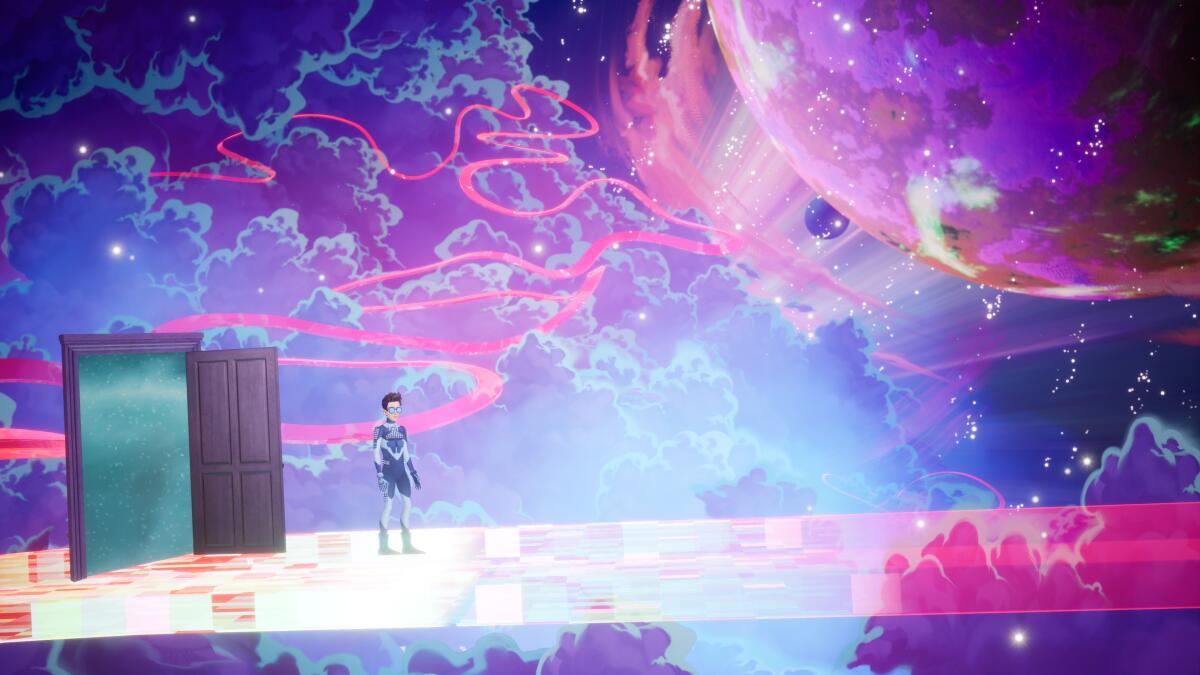
Wailing guitar gods, larger-than-life rock ’n’ roll personas — all these things seem a bit passé in our more personalized social media era in which music genre boundaries are elastically fluid. But “The Artful Escape” isn’t a celebration of an era; it’s a love letter to the idea of dreaming, an ode to the transcendent power of art and an interactive lesson in conquering self-doubt.
An animated reverie in which turtles have warp powers, giant fish revel in the power of dance, and we run and jump among forests that transform into neon-lit galaxies, “The Artful Escape” is part “Fantasia,” part “Yellow Submarine” and all wonder. Its soul, however, is its story, one young person’s quest to find a personal voice and grow comfortable in their own skin. Don’t worry about the rock ’n’ roll imagery. There are guitar solos, yes, but jazz, pop and alien rhythms too. “The Artful Escape” wants to dance with anyone who’s ever had the thought, “I’m dabbling with the idea of becoming someone else entirely.”
2. ‘Psychonauts 2’ (Xbox consoles, Windows, Mac)
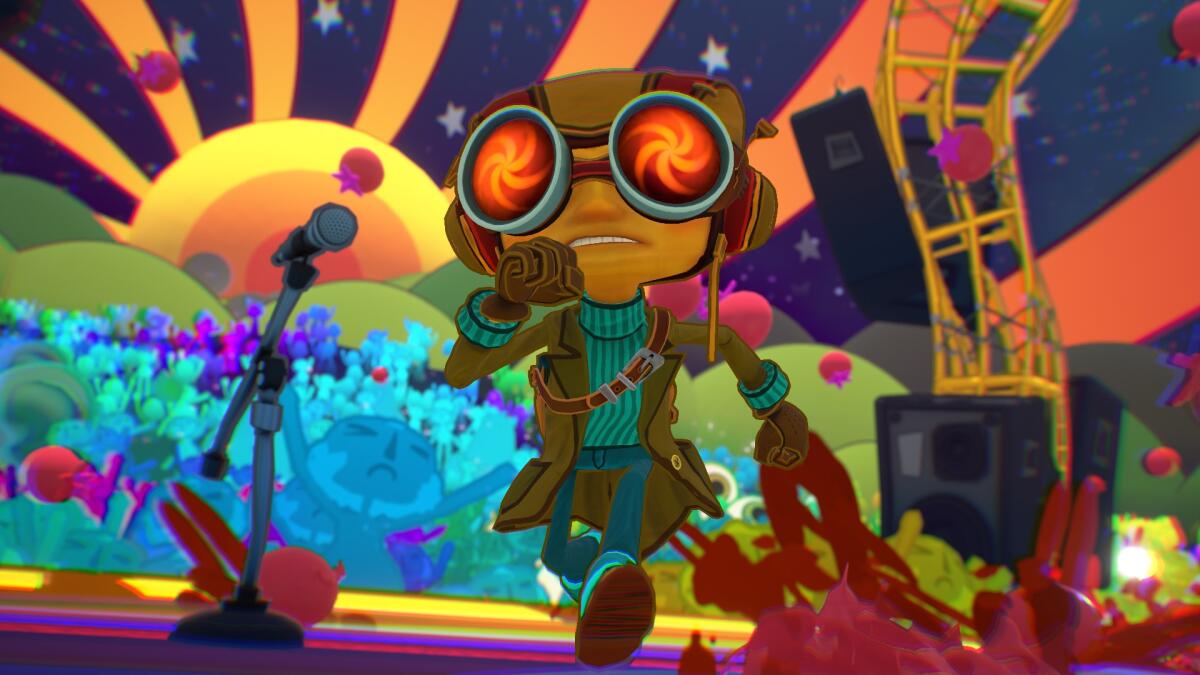
A game about mental health that’s funny, often challenging and full of outlandishly drawn set pieces — just get past the larger-than-life dental imagery in its opening sequence. The sequel a decade and a half after the original, “Psychonauts 2” is a triumph because it understands the wackiness and silliness inherent in run-and-jump video games, placing our hero in the sort of ridiculous scenarios that make sense only in games and animation. Soar on a giant letter around someone’s cranium? Sure, why not? But it’s through these exaggerations we see how fragile all of our minds can be.
3. ‘Sable’ (Xbox consoles, Windows )

“Sable” handles two of the most stressful, existential questions any of us will ever have to deal with — who are we ... and what kind of person do we want to be — in the most relaxing, thoughtful manner possible. Set Within a “Dune”-like desert landscape — only here there’s no war — we hover around landscapes on a quest of discovery. Along the way we encounter others, many of whom have favors for us to compete, but here helping and talking to them is a way to better get to know our own character’s desires. Maybe, if we’re lucky, we’ll figure out what we want to do with our lives. Or maybe we’ll just want to explore forever.
4. ‘Chicory: A Colorful Tale’ (PlayStation consoles, Windows, Mac)
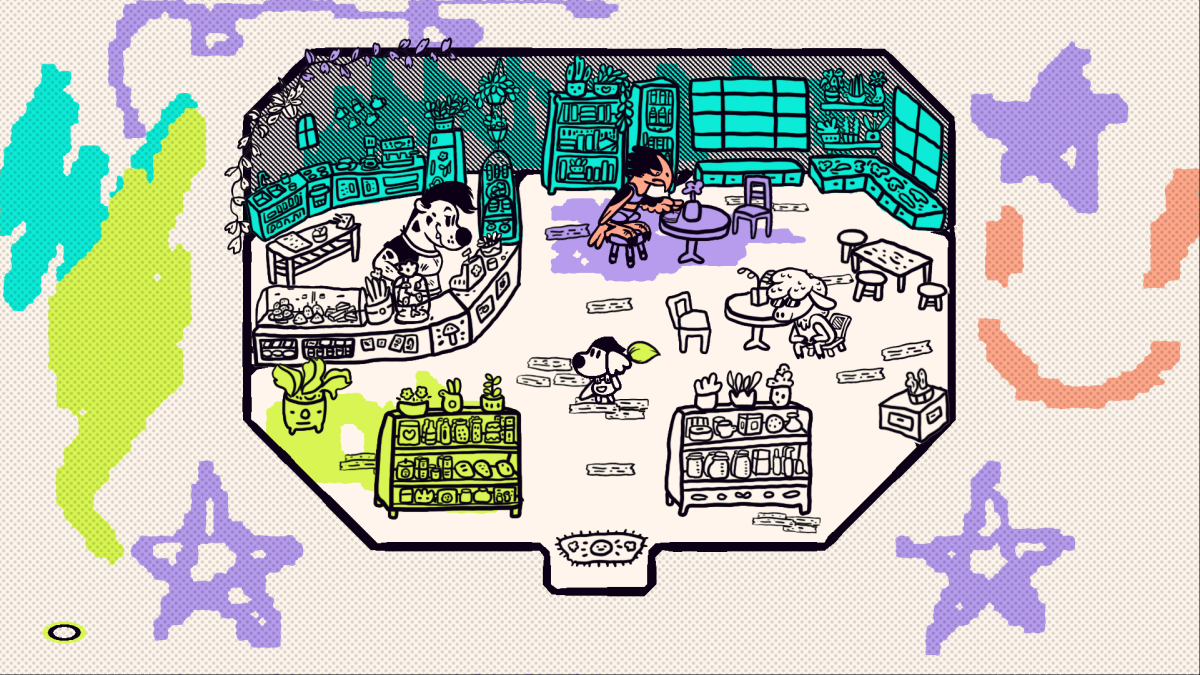
On the surface, “Chicory” is an adventure game inspired by “The Legend of Zelda,” in that we travel among forest towns and caves on a quest to heal the land. Black-and-white worlds become intricate coloring books — or messes of color, depending on your playstyle and, well, artistic sensibilities.
But it’s also a game about believing in the power of one’s own creativity, the surprise or astonishment that comes from an attempt to draw or paint, and the sometimes paralyzing stress of having to live up to others’ expectations. Like so many of the titles on this list, “Chicory” wants to communicate with the player, as interested in solving puzzles as it is raising questions.
The charming and therapeutic “Cozy Grove,” inspired by “Animal Crossing,” is just one recent release in the “wholesome games” movement. Why the games resonate.
5. ‘Unpacking’ (Windows, Mac, Nintendo Switch, Xbox consoles)

We’re constantly building the story of our lives, an evolving narrative that we live amid and inside. This theme is explored in “Unpacking,” a beautifully restrained and relaxing game that at its most basic is about the puzzle of organization. “Unpacking,” though, is ultimately a story about growing up, with life’s changes told through the items we own, the items we acquire and the ones we forever hold onto but keep just out of sight.
What makes it such a lovely game — and a prime example of the sort of environmental-focused storytelling that games do so well — is that we never meet any human characters. We get a glimpse of passions — art, painting, reading, video game playing — and some hints at fears, such as the moment our unseen protagonist writes that it feels like a big step to move in with a significant other, but “Unpacking” allows us to let our imaginations wander.
We’re constantly building the story of our lives, an evolving narrative that can be told through our possessions, a theme explored in “Unpacking.”
6. ‘Last Call’ (Windows)
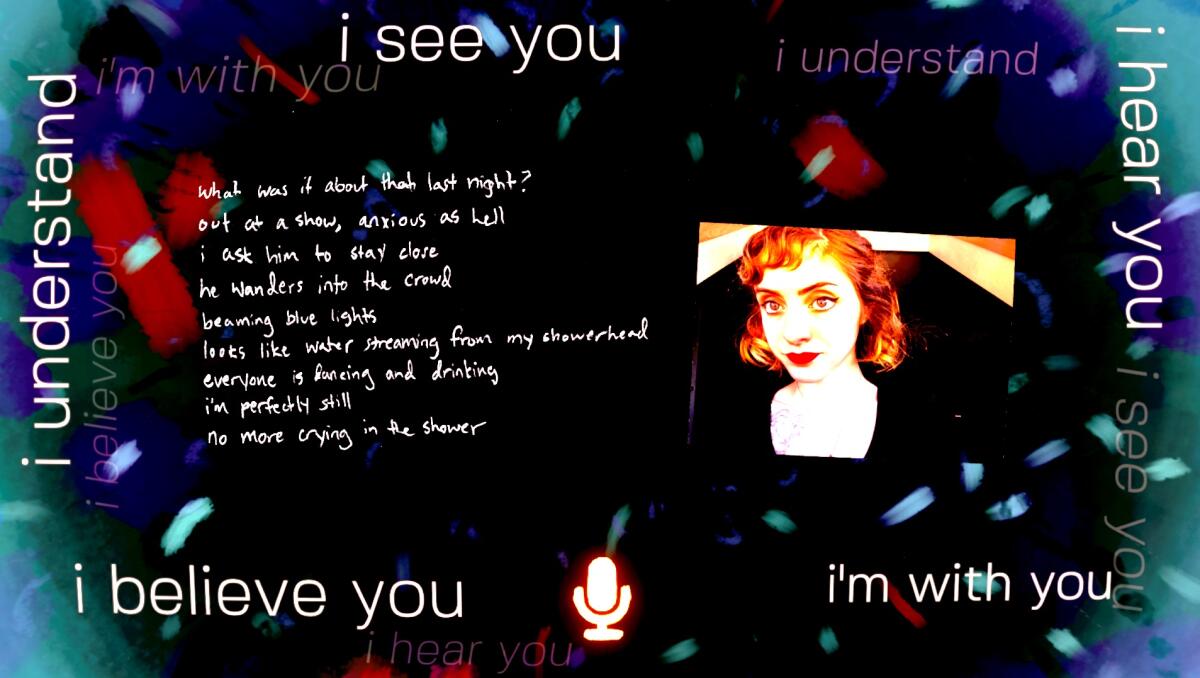
The best games, as noted earlier, are a dialogue, a conversation between player and designer, an opportunity for us to perform alongside an interactive text. “Last Call,” an autobiographical game from Nina Freeman and Jake Jefferies, is described by the creators as a “poem exploration game.” But what that really means is that it provides an opportunity to get inside someone’s mind, in this case a young woman who is a survivor of domestic abuse on the verge of a move.
Like all of Freeman’s vignette-style games, it’s deeply personal, but what makes it powerful is that we must speak into our computer microphones to advance through the home, letting our protagonist know we’ve heard her and we’re there for her. We may not fully relate to her experience but, forced to pause and vocalize our thoughts, we come to understand the emotional havoc that has transpired.
An interview with Esther Perel — the psychotherapist behind the popular podcast “Where Should We Begin?” and now a game developer — turns into a therapy session.
7. ‘Overboard’ (iOS, Android, Nintendo Switch, Windows, Mac)
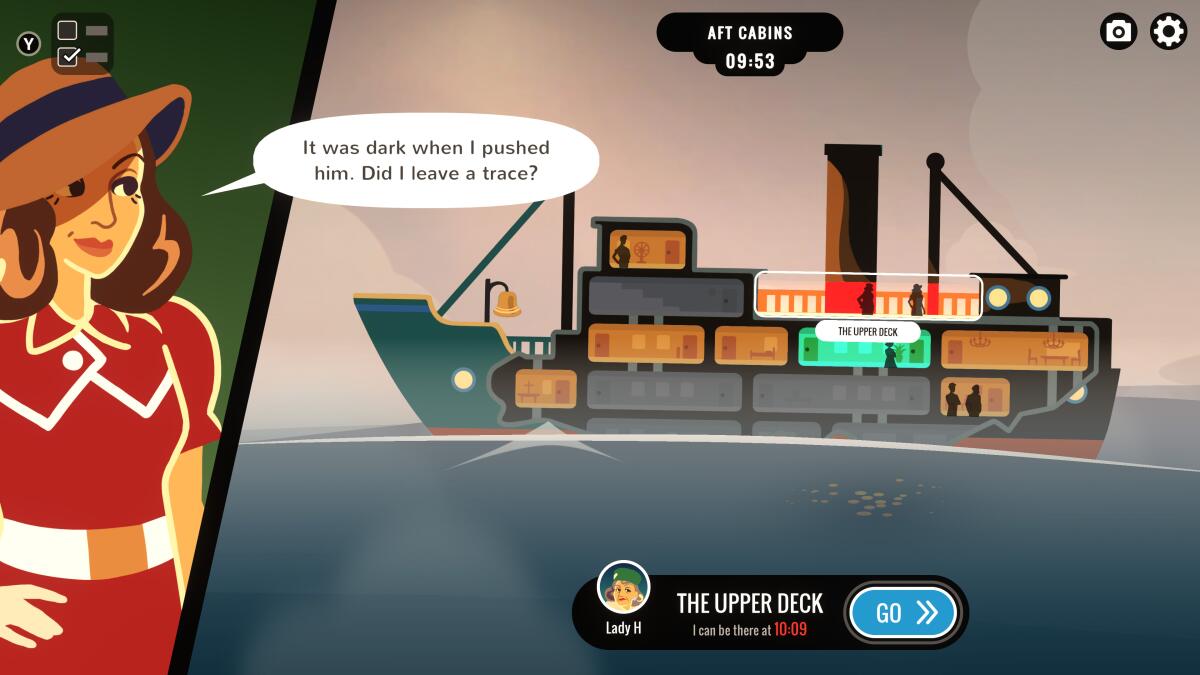
This narrative experience starts with an act of extreme violence: A woman in an unhappy marriage tosses her husband into the ocean.
We spend the game talking to others on the boat, trying to charm our way out of being caught for murder. It’s a thriller at its most delightful, as “Overboard” explores the manipulative nature of speech and how we’re all a bit of an emotional mess. Everyone on the boat has something to hide, but our character has the most to gain, and with the clock ticking we have minds to trick, including our own.
8. ‘Genesis Noir’ (Windows, Mac, Switch, Xbox consoles)
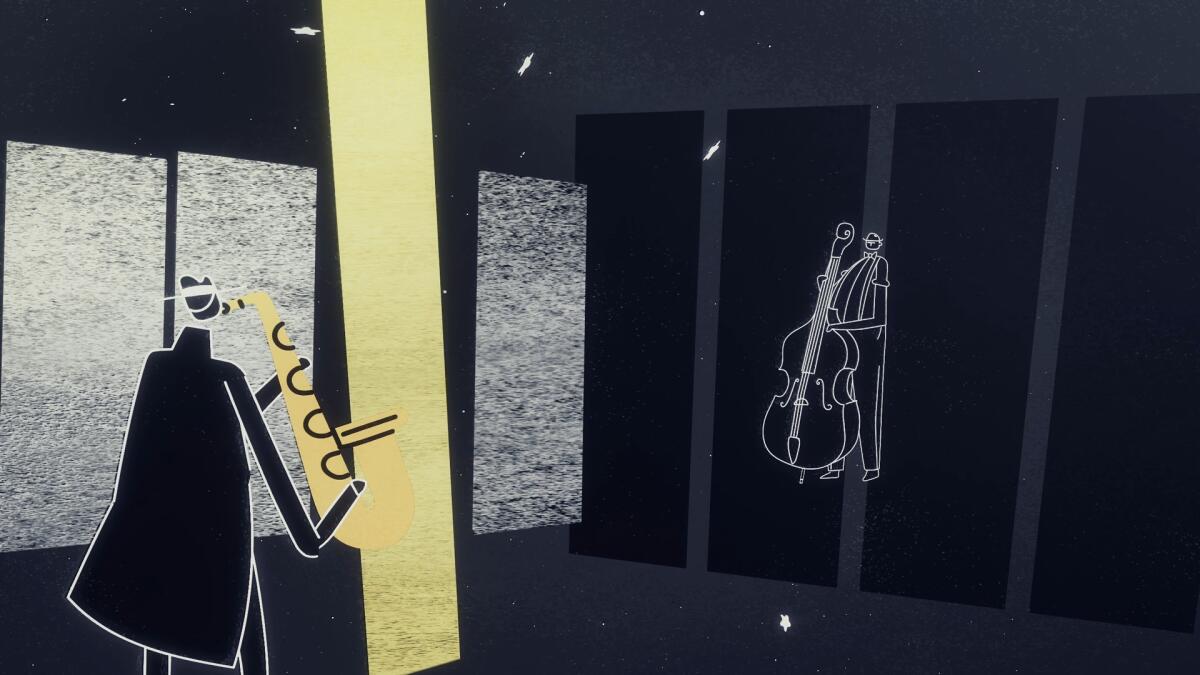
A jazzy, often abstract game about romance, moving on and how we dwell on the past. The game’s art style — part hardboiled detective tale, part malleably drawn comic — constantly takes flight, running our character through multiple dream-like cosmos.
What makes “Genesis Noir” engrossing is that each new setting asks us to relearn how to communicate with the game — what action, for instance, will occur if we press this button? We are in constant discourse, embarking on a guided path that provides an illusion of being a story director but still gives us an active role — at times we reconstruct Athenian-inspired narrative pottery, or, in its best moments, swipe a cursor to improvise in a jazz combo. Crucially, it’s a game that invites us to fill in the blanks with our own experiences.
It turns out games are uniquely tailored to explore love, romance and heartbreak. Consider “Maquette,” “Genesis Noir” and “Journey of the Broken Circle,” interactive conversations that ask players to think about love.
9. ‘Halo Infinite’ (Xbox consoles, Windows)
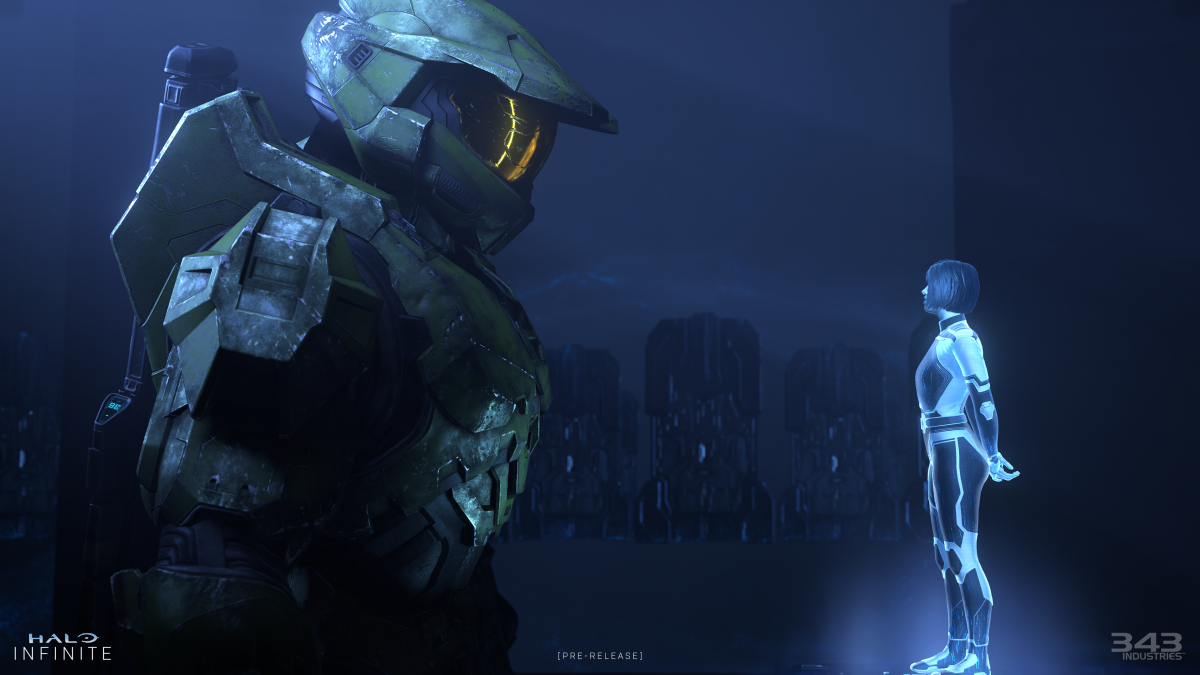
“Halo Infinite” embraces itself as sci-fi gobbledygook — wrapping a warm hug around its cheesy dialogue and reveling in the weirdness of its core storyline of one man’s relationships with artificially intelligent female holograms. Throughout, it soars as pulpy, timeless, space opera fantasy. The Microsoft-owned “Halo” franchise has for the past 20 years come to symbolize the modern video game shooter — less frantic than “Doom,” lacking the self-seriousness of “Call of Duty” and striving to balance complex storytelling with a bit of technological mysticism.
What strikes me most with “Halo Infinite,” the most “traditional” game on this list, is its sense of humor, how it aims to take something serious — the video game shooter — and make it approachable to all.
The space opera fantasy returns in ‘Halo Infinite’ with Master Chief, a grappling hook, cheesy dialogue and a gorgeous vast world that’s pulpy and timeless.
10. ‘Behind the Frame: The Finest Scenery’ (iOS, Android, Windows, Mac)
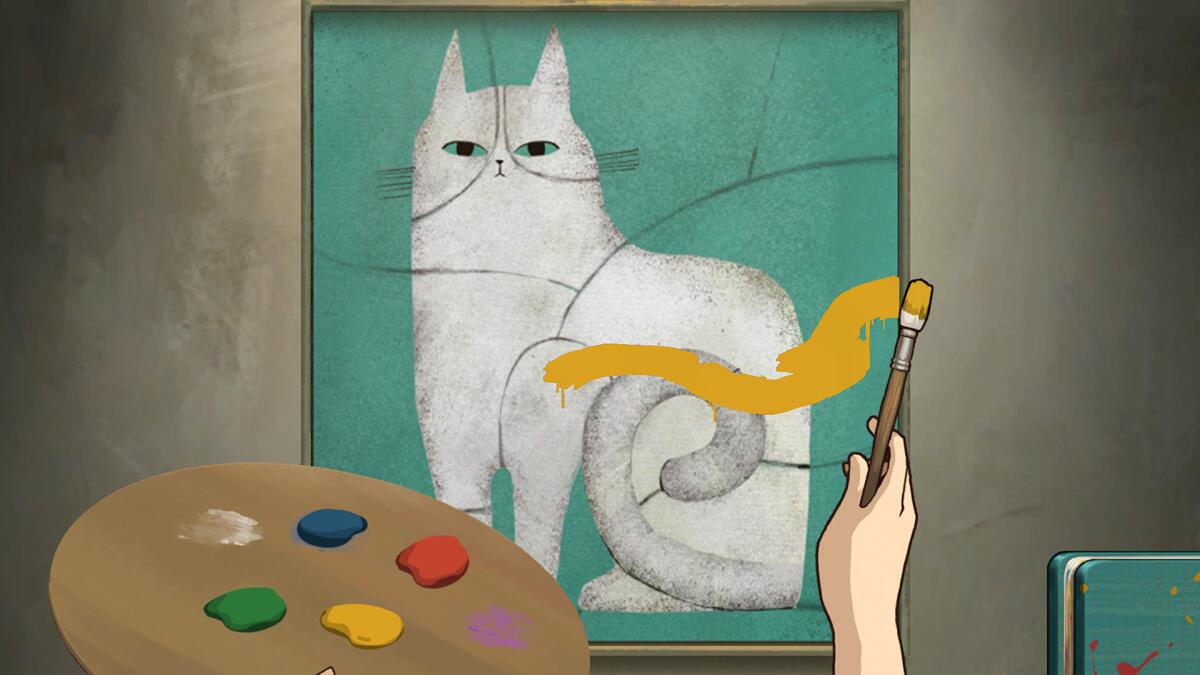
Think of “Behind the Frame” as an interactive animated film in which light puzzles jog the memory of the protagonist. Moments of potentially high drama, such as when a cat goes missing, are resolved quickly — this isn’t a game with problems to solve or objects to hunt. Cleverly, most of the game’s puzzles allow the users to create something too, by filling in the color of a painting or connecting directional cues. “Behind the Frame” wants to focus on the delicacy of its characters’ relationships, the beauty in sharing a conversation and also how life’s obligations result in most connections being ephemeral in nature.
Memory and a mystery relationship are poignantly conveyed through paintings in the short game ‘Behind the Frame.’
More to Read
The biggest entertainment stories
Get our big stories about Hollywood, film, television, music, arts, culture and more right in your inbox as soon as they publish.
You may occasionally receive promotional content from the Los Angeles Times.



